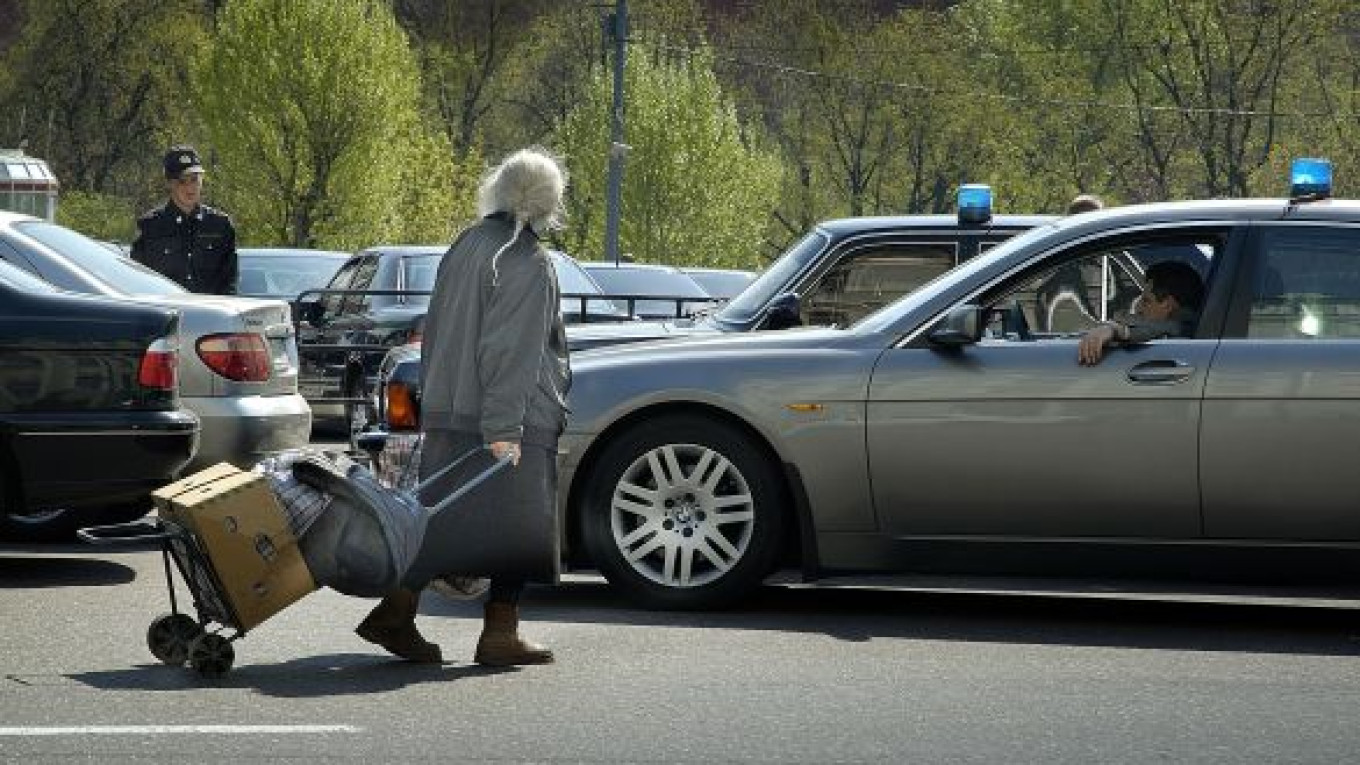Prime Minister Vladimir Putin has allowed a large part of officialdom to use flashing lights on their cars. But there are hundreds more on the streets than are declared in public regulations, Vedomosti has discovered, with the help of its readers.
An order on March 23 amended the list of government agencies whose automobiles can use light and sound signals, not counting emergency response services. In all, according to the published regulations, there should only be 964 sets of warning lights. In the government orders, however, there are clauses classified as "for service usage," where there are additional lists.
| State entity | Permits for using emergency lights on cars |
| Interior Ministry | 142 |
| Cabinet | 30 |
| Prosecutor General's Office | |
| (Including Investigative Committee) | 65 |
| Federal Guard Service | 50 |
| Federal Security Service | 230 |
| State Courier Service | 70 |
| Defense Ministry | 21 |
| Presidential Administration | 50 |
| Foreign Intelligence Service | 8 |
| Federal Drug Control Service | 8 |
| Federation Council | 8 |
| Foreign Ministry | 7 |
| Emergency Situations Ministry | 4 |
| Federal Customs Service | 3 |
| Constitutional Court | 3 |
Others who have the right to use flashing lights include governors, heads of regional parliaments and heads of ministries, services and agencies.
In all, there are at least 1,123 cars in Russia that operate with warning lights, Vedomosti's "On the Hunt for Flashing Lights," has revealed. Vedomosti readers have taken photographs of the license plates on cars with the flashing lights and sent them in to the newspaper. The paper is waiting for an explanation for the phenomenon from the Interior Ministry.
Putin has taken away rights to use the signal from the Interior Ministry, as he has with other security services that report directly to the president. The police lost the rights to 31 sets of flashing rights, and now are limited to 142. An Interior Ministry source said that of the currently number, about half go to the minister, his seven deputies, including their replacement cars, and the heads of 15 departments.
The remainder are used by the emergency response services of the ministry's central administration for automobiles not designated as police cars that are nevertheless used for emergency response. But an investigator at one Interior Ministry department said he had only once seen flashing lights on such a car that was definitely being used in an emergency response.
A Message from The Moscow Times:
Dear readers,
We are facing unprecedented challenges. Russia's Prosecutor General's Office has designated The Moscow Times as an "undesirable" organization, criminalizing our work and putting our staff at risk of prosecution. This follows our earlier unjust labeling as a "foreign agent."
These actions are direct attempts to silence independent journalism in Russia. The authorities claim our work "discredits the decisions of the Russian leadership." We see things differently: we strive to provide accurate, unbiased reporting on Russia.
We, the journalists of The Moscow Times, refuse to be silenced. But to continue our work, we need your help.
Your support, no matter how small, makes a world of difference. If you can, please support us monthly starting from just $2. It's quick to set up, and every contribution makes a significant impact.
By supporting The Moscow Times, you're defending open, independent journalism in the face of repression. Thank you for standing with us.
Remind me later.


